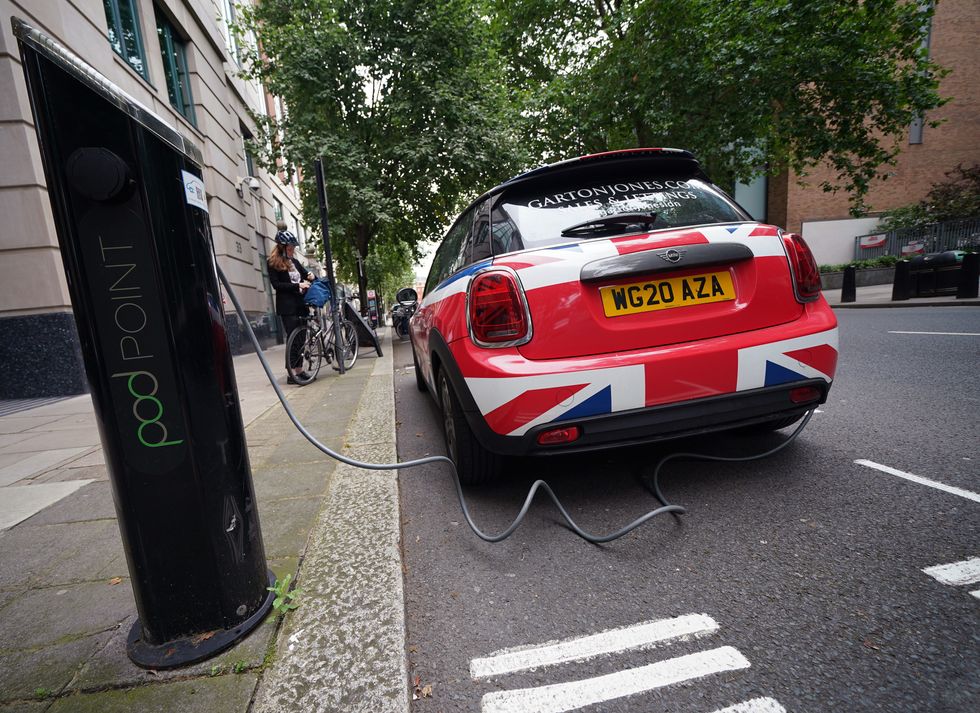There have been calls for new car tax changes
GETTY
Electric car owners will begin to pay car tax from 2025
Don't Miss
Most Read
Trending on GB News
Experts have called on the Government to act to help protect drivers from massive car tax bills with changes set to be introduced in just over a year.
In the recent Autumn Statement, Chancellor Jeremy Hunt unveiled new tax cuts and boosted investment for zero emission vehicle development.
Despite this, some drivers may have been left unimpressed with the Government over its lack of clarity on key issues like Vehicle Excise Duty (VED), fuel duty and other motoring factors.
There have been suggestions in the past that the Government would introduce a pay-per-mile system of taxation, although this could unfairly harm those in rural areas and people who drive for a living.
WATCH NOW: Labour's Steve Reed reacts to electric car plans
The Government’s most recent update to the tax system was to unveil plans to start charging electric cars to pay VED from 2025.
Alfonso Martinez, UK Managing Director of ALD Automotive LeasePlan, commented on the lack of updates on Vehicle Excise Duty in the recent Autumn Statement.
He added: “After almost 20 years of governments debating road pricing as an alternative to Vehicle Excise Duty (or ‘road tax’), the Chancellor ruled out any near-future changes to the current system in March.
“Unfortunately, incoming reforms to the VED system are set to add a significant tax burden for electric vehicle drivers from April 2025.
“As it stands, the VED exemption for electric cars (and discounts for hybrids) will end on 1 April 2025.
“This means all vehicles registered since April 2017 will pay the same annual tax rate, while the Expensive Car Supplement – an additional charge for the first five yearly renewals – will apply to new registrations with a list price of £40,000 or more.”
Martinez pointed to the fact that electric car prices are falling, although many are still above the £40,000 threshold, and very few under £30,000.
This includes the UK’s best-selling electric vehicle - the Tesla Model Y - which starts from £44,990, despite the Elon Musk-led manufacturer slashing prices over the last year.
The majority of drivers are put off by the upfront cost of new electric vehicles given that similar petrol and diesel counterparts can be purchased for a much cheaper price.
Used electric cars numbers are increasing, with many experts hailing the growth of the second-hand market which will act as a vital measure to boost uptake.
Alfonso Martinez added: “As rates rise with inflation, this system will leave drivers with a tax bill of around £600 per year for an electric vehicle, or three times more than the petrol or diesel equivalent.
“The Chancellor should consider adjusting the threshold to account for the still-higher price of EVs or exempting them altogether.
“It's also worth noticing that, five years after it launched its consultation, the Government has yet to reform the VED system for vans.”
Electric vehicle owners will be required to pay VED from 2025, with Chancellor Jeremy Hunt saying it would make the motoring tax system “fairer”.
LATEST DEVELOPMENTS:

Electric vehicle owners will need to pay car tax from 2025
PA
New EVs registered on or after April 1, 2025, will be liable to pay the lowest first-year rate of VED, which is currently £10 a year.








